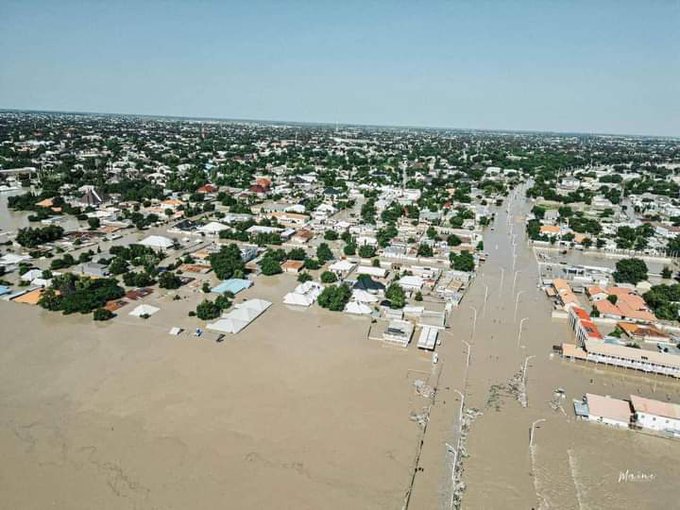The approval of N108 billion by President Bola Ahmed Tinubu to combat flooding and erosion in Nigeria’s 36 states is a significant step in addressing a perennial environmental crisis. Each state is set to receive N3 billion from the fund, which could serve as a lifeline for many communities at the mercy of natural disasters. This comes in the wake of devastating floods ravaging the northern region, particularly Maiduguri, and a looming threat of more floods across the southern states. Furthermore, erosion has been a persistent issue, especially in the Southeast and parts of Kaduna. As the Nigerian Meteorological Agency (NiMet) forecasts heavier rainfall and more flooding in the months ahead, the need for proactive and effective flood management is more urgent than ever.
However, the history of governance in Nigeria compels us to raise a crucial concern; will these funds be used as intended, or will they fall prey to mismanagement and personal enrichment by the state governors? Nigerian governors, like many other public officials, have often been accused of diverting funds meant for public welfare into personal coffers. It is therefore critical to hold them accountable and ensure that the N108 billion earmarked for flood and erosion control reaches its intended purpose—protecting lives, infrastructure, and farmlands.
Nigeria’s vulnerability to flooding has been underscored by years of devastation. In 2022 alone, floods displaced over 1.4 million people, with many losing their homes, livelihoods, and loved ones. The current situation in Maiduguri serves as a stark reminder of the urgency of the issue. Massive floods have inundated homes and farmlands, leaving communities in dire need of relief and rebuilding efforts. In the southern part of the country, states are similarly bracing for impact as rivers swell and drainage systems buckle under the weight of torrential rains.
Beyond the immediate destruction, flooding has a ripple effect on food security, health, and the economy. Destroyed farmlands lead to food shortages, while contaminated water and inadequate sanitation cause outbreaks of waterborne diseases. The economic costs are staggering, with billions of naira lost in property damage and disrupted economic activities.
While flooding tends to dominate headlines, erosion is a silent yet equally destructive crisis that affects large swathes of Nigeria. In the Southeast, entire communities have been lost to the relentless encroachment of gully erosion, which swallows roads, homes, and farmlands. Kaduna, too, is grappling with this challenge, as heavy rains accelerate the degradation of the land. Erosion may not cause the immediate devastation of floods, but its long-term consequences are equally dire. Left unchecked, it will continue to undermine infrastructure, displace people, and disrupt livelihoods.
With N3 billion allocated to each state, governors have a unique opportunity to make a tangible impact in combating both flooding and erosion. Yet, we cannot ignore the elephant in the room: Nigerian governors have a track record of diverting funds intended for public use. From ecological funds to COVID-19 relief funds, history has shown that some governors have seen such allocations as a personal windfall rather than resources to benefit their states.
It is against this backdrop that Nigerian citizens must demand accountability from their governors. The N108 billion must not be another story of squandered public resources. Civil society organisations, the media, and independent auditors must keep a close watch on how these funds are used. Public reporting on the progress of flood and erosion control projects should be mandatory, and governors must be transparent in their expenditures.
The need for long-term solutions to Nigeria’s environmental challenges cannot be overstated. While the N108 billion is a welcome relief, it should be seen as the beginning, not the end, of flood and erosion control efforts. States must invest in sustainable infrastructure, such as proper drainage systems, dams, and erosion control barriers. They should also prioritise urban planning that takes environmental factors into account, reducing the likelihood of floods and erosion in the future.The allocation of N108 billion is a golden opportunity for Nigerian governors to demonstrate responsible leadership and commitment to the well-being of their states.
Philemon wrote from Utako, Abuja

 Join Daily Trust WhatsApp Community For Quick Access To News and Happenings Around You.
Join Daily Trust WhatsApp Community For Quick Access To News and Happenings Around You.


